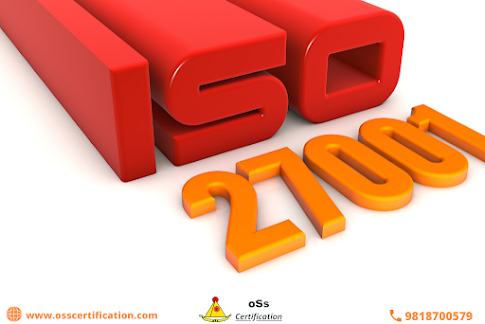The Purpose Of Getting ISO 27001 Certification In India
The International Organization for Standardization is a global community that organizes and controls standards from various professions. In today's world, with so numerous enterprises reliant on the internet and digital grids, the technology parts of ISO standards are evolving increasingly important.
The ISO 27001 Certification standard, in certain, is planned to act as a framework for a society information security management system. This possesses all policies and procedures pertaining to the management and use of data. ISO 27001 does not demand specific tools, keys, or methods; instead, it acts as a compliance checklist.
How to Acquire ISO 27001 Certification
Obtaining ISO 27001 certification is generally a multi-year strategy that necessitates effective participation from both internal and exterior stakeholders. It is not as easy as completing a list and presenting it for approval. Before using for certification, you must confirm that your ISMS is fully grown and covers all possible areas of technology risk.
The ISO 27001 certificate method is usually divided into 3 stages:
The organization hires a certificate body, which then serves as a basic assessment of the ISMS to examine the main types of documentation.
The certification body shows a more in-depth Lead Auditor Training in which individual ISO 27001 parts are likened to the organization's ISMS. Proof must be supplied to indicate that policies and practices are being tracked correctly. The lead auditor is in control of deciding whether or not the certificate has been earned.
To ensure adherence, follow-up audits are planned between the certificate body and the organization.
What are ISO 27001 Certification standards?
Before trying ISO 27001 certification, all key stakeholders within an association should become totally acquainted with the standard's design and application. ISO 27001 is divided into 12 units:
Introduction: describes what information protection is and why a company should address risks.
Scope – covers high-level conditions for an ISMS that can be involved in any type of organization.
Normative References – describes the relationship between ISO 27000 and ISO 27001 standards.
Terms and Descriptions – This section protects the measure's complex terminology.
Corporate Context – explains who should be concerned in the design and maintenance of the ISMS.
Leadership – explains how organizational managers should devote themselves to ISMS policies and practices.
Planning – outlines how hazard management should be scheduled throughout the organization.
Support – explains how to increase information security grasp and assign responsibilities.
The operation entails how risks should be addressed and documentation should be conducted in order to complete audit standards.
Skit Evaluation – outlines how to observe and calculate the ISMS's performance.
Improvement – describes how the ISMS should be revised and enhanced on a regular foundation, particularly after audits.
Maintain Goals and Controls – delivers an annex describing the particular audit elements.
How Does ISO 27001 Certification Assist You?
An organization obtains ISO 27001 in charge to be approved for having a certain information control system within the organization.
Here are a few benefits of ISO 27001 certification that really assist organizations in supporting details data security and making client trust:
Removes risk: As we all know, the threat of a cyber-attack is growing by the day. If you have an ISO 27001 certified ISMS, you can stop the chance of hacking or data harm.
Cost-useful: With an ISO 27001 certification, one can readily avoid or stop cyber risks, such as the threat of data loss or harm in IT. One can devote time and money to data design and management.
More Advancement: By connecting IT-related personal data, an organization can save time and funds on data creation and control. Furthermore, this useful time and money can be financed in a company's center operational activities.




Comments
Post a Comment